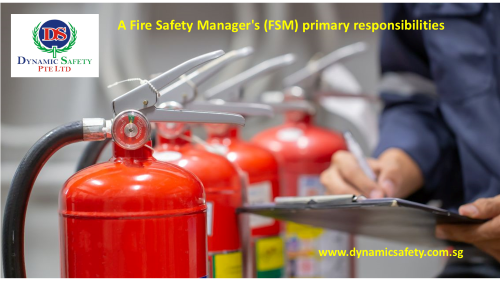



Blog
A Fire Safety Manager's (FSM) primary responsibilities

A Fire Safety Manager's (FSM) primary responsibilities include:
Conducting risk assessments, putting fire prevention measures into place, making sure that fire safety equipment is maintained properly, educating staff on fire safety protocols, and creating and managing emergency arrangements for evacuation in case of a fire.
Risk Assessment:
To identify possible fire threats within the building and rank mitigating methods, conduct routine fire risk evaluations.
Fire Prevention Measures:
Putting into practice and upholding fire safety procedures, such as keeping flammable products in the right storage, checking electrical systems frequently, and making sure fire safety signage is prominent.
Fire Safety Equipment Management:
Making sure that fire safety devices such as sprinkler systems, smoke detectors, fire alarms, and extinguishers are in working order by routinely testing and inspecting them.
Staff Training:
All employees should receive thorough fire safety training that covers everything from using fire extinguishers to responding to fire alarms.
Emergency Evacuation Plans:
All employees should receive thorough fire safety training that covers everything from using fire extinguishers to responding to fire alarms.
Incident Reporting and Investigation:
Examining any fire accidents that take place within the building, recording the results, and implementing corrective measures to stop them from happening again.
Compliance with Regulations:
Confirming that the structure complies with all applicable local fire safety laws and ordinances.
Dynamic Safety provides Outsourcing service for Selected Professionals with Expertise in their field, Immediate Availability, Covering your temporary staff absence.

